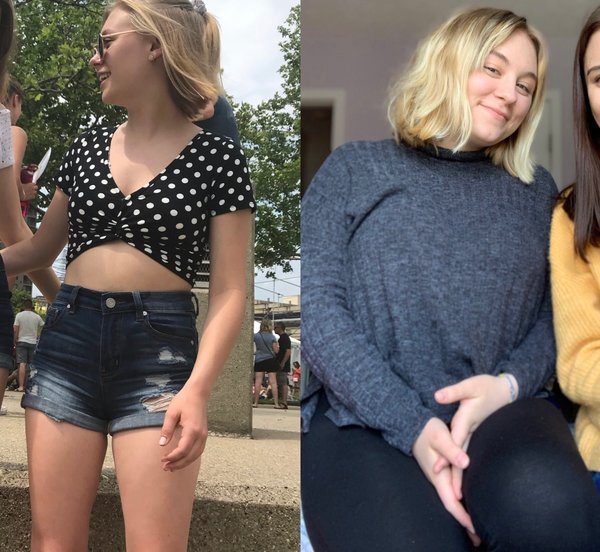No matter where you look on the internet you can find "thinspo" or "pro-ana" content whether it be on Facebook, Twitter, TikTok, or Tumblr. Thinspo is shorthand for "thin inspiration" and pro-ana is short for "pro-anorexia." These phrases have been used for years by various groups to promote a certain body type through disordered eating. While some accounts claim not to promote eating disorders, these disclaimers become suspicious when the only content on the page are photos of incredibly thin people with no commentary attached by the creator, only the occasional heart-eye emoji or "beautiful! perfection!" in the comment sections. While it can be tempting to think that thinspiration and pro-anorexia blogs are a thing of the past with the body positivity movement steadily gaining more support, these harmful groups are unfortunately still very much alive.
Even with the strides made by the body positivity movement, we can't act like eating disorders are a thing of the past.
Having more plus-sized role models to look up to like Lizzo and Ashley Graham is awesome, however, it doesn't erase the damage being done by the people promoting disordered eating practices. According to the National Association of Anorexia Nervosa and Associated Disorders, every 62 minutes someone dies as a result of an eating disorder.
We can't keep pretending that eating a starvation diet equates to wellness, because the hard-to-swallow truth is that you can't be "well" if you don't give your body enough fuel to keep going.
No one wants to talk about the morbid, ugly truth – they only want to look at pictures of women with thigh gaps and visible ribcages on Instagram.
Although not all thinspo is as obviously malicious as what I mentioned earlier, the devil is always in the details. While lifestyle influencers may not call their content thinspiraton, it checks all the same boxes. These influencers promote disordered eating practices through their "What I Eat in a Day" videos, perhaps unaware of what they're doing. Regardless, they often offer anecdotes on how they lost weight or how to "be healthy" as if there is only one way to be healthy.
In order to combat influencers that spread negative ideas about wellness, we need influencers that take on these harmful messages and disassemble them. We need someone like Abbey Sharp, a registered dietitian and YouTuber who has struggled with an eating disorder herself and now helps people live healthy lives at any size. She talks frequently about the dangers of disordered eating that are frequently espoused in "What I Eat In A Day" videos created by influencers who claim to promote healthy lifestyles. She is the type of person we need the most right now, or else the glorification of eating disorders will continue.
Glorifying these unsustainable, and in most cases, unattainable body-types is sending the wrong messages about wellness. These messages tell people that "health" or "wellness" is synonymous with being a size zero and drowning in extra-small shirts. They say that health is about how you look, how much you weigh, and what size clothes you wear. This couldn't be farther from the truth.
The secret to health is not a one-size-fits-all sweatshirt.
Health looks different for different people, and most of these thinspiration influencers do not acknowledge this. As a community we need to take a hard look at the content we create and consume. What may seem like a harmless video or blog post could be spreading negative ideas under the guise of promoting so-called "health." If we let young boys and girls think that eating only a handful of almonds and a green smoothie a day is a form of "wellness" then we will never make progress.





















